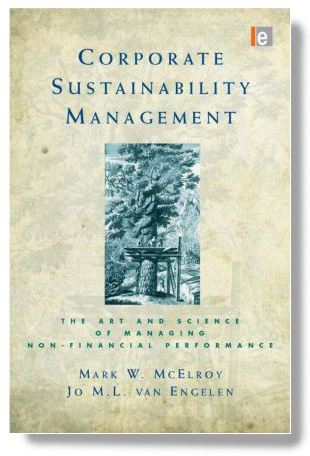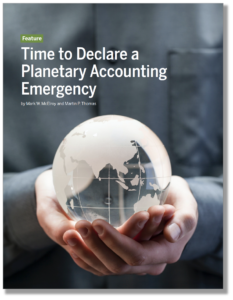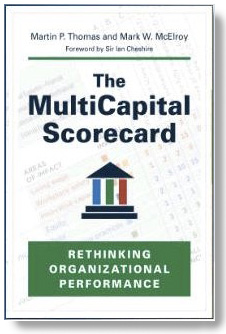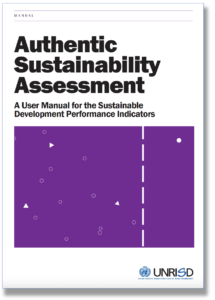The Center for Sustainable Organizations
Birthplace, Home & Historical Archive of Multicapitalism & Context-Based Accounting
Peer-Reviewed Demos of Context-Based Sustainability (CBS)
World’s 1st Context-Based
Triple Bottom Line Methodology
.
2012 Book-Length Intro to
Context-Based Sustainability
United Nations Implementation of Context-Based Sustainability
.
“Biologists do not believe in perpetual motion. Economists [however] seem dedicated to keeping an open mind on the subject.”
Herman E. Daly (2002)
Is It Now Time to Play the ‘Big Game’ in Sustainability?
As bottom-up corporate initiatives consistently fail to achieve sustainability in commerce, we and many others are starting to look beyond the four walls of individual businesses (and their supply chains) for solutions in other places. Of particular interest is the role interventions made at the macroeconomic level can play, especially as informed by Modern Monetary Theory and the kinds of measurement innovations we ourselves have been creating for many years now. This leads to a new strategy for achieving sustainability in business that we refer to as a Macroeconomic Theory of Sustainability (MTS) – a promising new blueprint for how best to move from monocapitalism to multicapitalism. This is the ‘Big Game’ in sustainability and it’s time to play it!
Time to Declare a Planetary Accounting Emergency!
As if Planetary Climate Change and other crises were not enough, we now have a Planetary Accounting Emergency to contend with as well – a chronic and widespread failure of performance accounting in the public and private sectors to fully reveal the effects of human activity on human well-being. See this important article on the subject in the journal Solutions (Dec. 2020), Time to Declare a Planetary Accounting Emergency.
UN Calls For ‘Authentic’ Triple Bottom Line Accounting
The United Nations is now openly advocating for context-based accounting in a report issued by UNRISD in late 2022, entitled: Authentic Sustainability Assessment: A User Manual for the Sustainable Development Performance Indicators. Largely based on Context-Based Sustainability, a rigorous and distinctive approach to sustainability measurement developed by CSO Director Mark W. McElroy in 2008, the UN report is the first international effort to specify a multi-bottom-line range of context-based indicators for use by organizations around the world.
Generally Accepted Integrated Accounting (GAIA) Principles
CSO is very pleased to share its proposal for the world’s first articulation of Generally Accepted Integrated Accounting (GAIA) Principles. Just as financial accounting is grounded in GAAP and IFRS, so must there be a set of generally accepted principles for integrated and non-financial accounting – sustainability accounting, too. No such principles, however, have been formally adopted and yet they do exist. A full presentation of our thinking can be found here.
Elkington Hails ‘Long-Awaited’ Triple Bottom Line Platform
First came Certified B Corps and Benefit Corporations. Now come “Certified TBL Orgs”, a management-system blueprint for organizations interested in operationalizing world-class Triple Bottom Line (TBL) accounting functions. As co-developer of this concept with Social Accountability International (SAI), we are very pleased to be able to share an independent review of it by the creator of the Triple Bottom Line concept himself, John Elkington:
“When I coined the term Triple Bottom Line back in 1994, I imagined integrated and increasingly systemic solutions to the sort of challenges later outlined in the UN Sustainable Development Goals. The reason I launched the first-ever ‘product recall’ for a management concept in 2018, in this case for the TBL, was that the mainstreaming and capture of such concepts and frameworks was diluting their original intent. At the time I didn’t yet know what the best way forward would be, but in another example of ‘You know it when you see it’ I now see Mark McElroy’s work with Social Accountability International (SAI) as the beta version of the operating code of the long-awaited platform on which the future of TBL strategy, management, valuation, accounting and reporting can now be built.” (May, 2023)
John Elkington, Founder & Chief Pollinator, Volans Ventures, and pioneer in Triple Bottom Line thinking
Rights, Duties and Corporate Social “Kantracts”
CSO is pleased to announce the introduction of “Corporate Social ‘Kantracts’ ” (CSKs), a cutting-edge evolution of integrated accounting developed by its Founding Director, Mark W. McElroy. As Dr. McElroy explains in Rights, Duties and Corporate Social “Kantracts”, CSKs address the implicit normative foundations of performance accounting by making them explicit, and in a way that specifically brings Kantian ethics into play.
What is Context-Based Sustainability (CBS)?
If you’re new to Context-Based Sustainability (or CBS) – sometimes referred to as Context-Based Accounting – or just a little rusty on the subject, take a look at this short tutorial: The Essence of CBS and also this Wikipedia page that explains the concept in more detail.
Thresholds, Allocations & the Carrying Capacities of Capitals
Having hosted, starting in 2005, our Founding Director’s creation of what today is regarded as best practices in sustainability accounting – the specification of thresholds, allocations and the carrying capacities of capitals – we are pleased to share Dr. McElroy’s synthesis of his thinking in these areas, the intellectual history that preceded them, and a commentary of his own on recent events in the field: Thresholds, Allocations and the Carrying Capacities of Capitals: Core Principles in Sustainability and Integrated Accounting.
Move Over Homo Sapiens, Here Comes Homo Deceptio
Why do so many companies publish sustainability reports that amount to nothing of the kind, thanks mainly to the absence of context-based measures? The answer, some scientists say, is because it makes them look better, if only falsely so. Evolution, they explain, tends to favor and select for deception as if it is better to conceal one’s faults than disclose them. Self-deception, too, only strengthens the ruse. See our new paper on this topic: Move Over Homo Sapiens, Here Comes Homo Deceptio
Performance Implies Ought
‘Performance implies ought‘ is a philosophical principle put forward by CSO founder Mark W. McElroy in 2023, according to which an agent’s actions or inactions can be morally judged or assessed, if and only if corresponding duties or obligations also obtain. One cannot be judged, that is, by standards of performance that do not legitimately apply in the first instance. Unlike impact valuation for discretionary, charitable, or merely incidental impacts, performance accounting per se implies the applicability of non-discretionary duties and obligations to specific agents and is effectively a form of responsibility accounting.
Sustaining-Rule-Consequentialism
Sustaining-rule-consequentialism is a moral philosophy and variant of rule-consequentialism developed by CSO founder Mark W. McElroy in 2025. It stands alone as an ethical theory in that it (a) judges actions in terms of rules they must conform to, (b) expresses such rules as duties owed by agents to regulate their impacts on the sufficiencies of vital capitals, and (c) requires sustainability in the conduct of human affairs.
The Center for Sustainable Organizations
What differentiates CSO from others in the sustainability arena is its strong commitment to an approach for corporate sustainability measurement, management and reporting that is context- and multicapital-based



